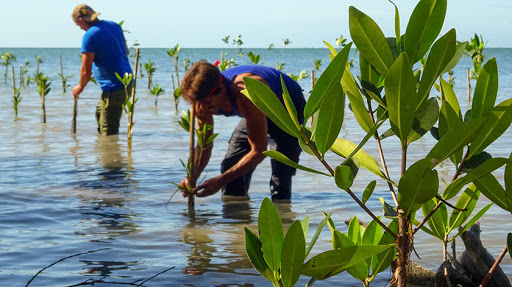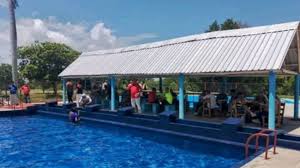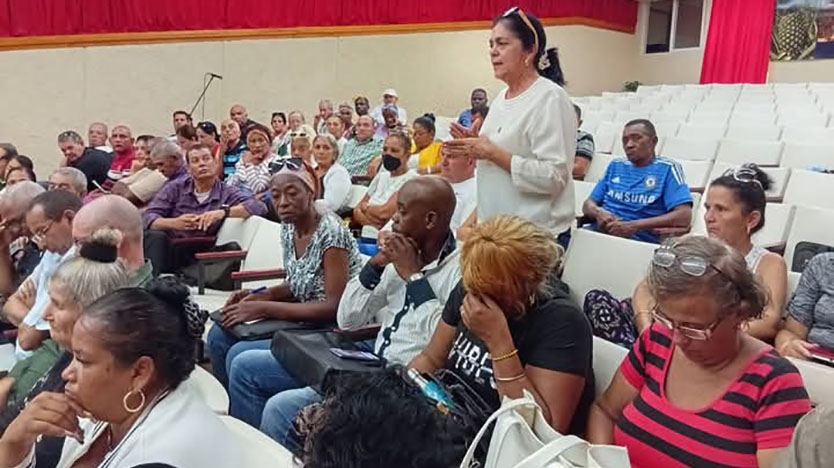With actions aimed at the recovery of forested areas and the re-establishment of hydrological processes in a segment of the southern wetland, the International Mi Costa Project contributes to materialising the Cuban State’s Plan for Confronting Climate Change (Task Life) in the province of Ciego de Ávila.
Daylon Fundora Caballero, a member of the coordinating team for the aforementioned global initiative, financed by the Green Climate Fund and the Cuban Government, declared to the Cuban News Agency that within a period of eight years (2021-2029) they will intervene in 673 hectares (ha) of mangroves, 835 ha of swamp forests, and 805 ha of swamp grasslands.
To date, they have advanced in the reconstruction of 28.7 ha of forests, the management of assisted natural regeneration in another 66 ha, and the planting of 114.6 ha of red mangrove, tasks which respond to the nation’s interest in reducing the impacts in these areas, in line with Task Life.
The construction of a technicised nursery in the municipality of Venezuela, with a capacity of 120 thousand tubettes, offers guarantees for reproducing native plants that support the processes of rehabilitating the vegetation cover, which have become ecosystem-based adaptation solutions.
To this is added the removal of obstacles in water channels and the strengthening of the terrestrial water monitoring system, which includes maintenance actions in recharge and bathymetric wells located in the Southern Basin of the Avilanian territory.
Likewise, technological capacities for monitoring and controlling water resources were strengthened with the installation of automatic equipment of different functions (hydrometric stations, level and rainfall recorders, and precipitation and salinity sensors).
These devices provide real-time information on rainfall and its run-off, the availability of groundwater, and liquid quality parameters, which favours decision-making to protect a vital resource and make efficient use of it in economic and social activities.
Fundora Caballero specified that access to data for decision-making at different levels is facilitated, with the objective of improving water flows in the basin, which will enable the restoration of freshwater drainage in coastal ecosystems and aquifers to reduce saltwater intrusion.
Mi Costa is being implemented in a climate scenario characterised by the accelerated rise in sea level, the increase in air temperature, and the increase in the frequency and intensity of extreme hydrometeorological events, primarily hurricanes.
In that context, they are strengthening technological capacities and executing technical tasks to increase resilience to the effects of climate change in communities and coastal ecosystems located in the two most vulnerable sections of the Cuban southern coast, covering 1,300 kilometres, with direct benefits for seven human settlements and 24 municipalities.
Simultaneously, the international project fulfils a Programme for the Creation and Strengthening of Capacities aimed at actors from local governments, economic and social sectors, the technical personnel involved in the ecological restoration processes, and the inhabitants of the communities.
The transfer of knowledge, supported by the theoretical-methodological precepts of Popular Education, and based on the training of trainers, is essential for the various local representations to participate actively, during and after the project, in the implementation of natural solutions to confront climate change.
In the case of Ciego de Ávila, Mi Costa has its direct intervention site in the locality of Júcaro and also acts in the territories of Venezuela and Baraguá.




